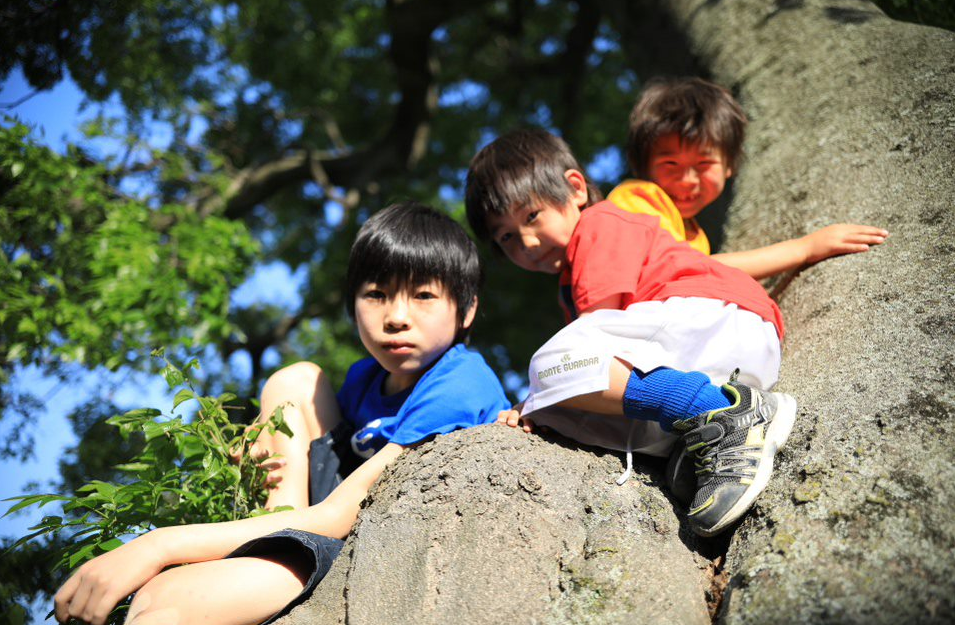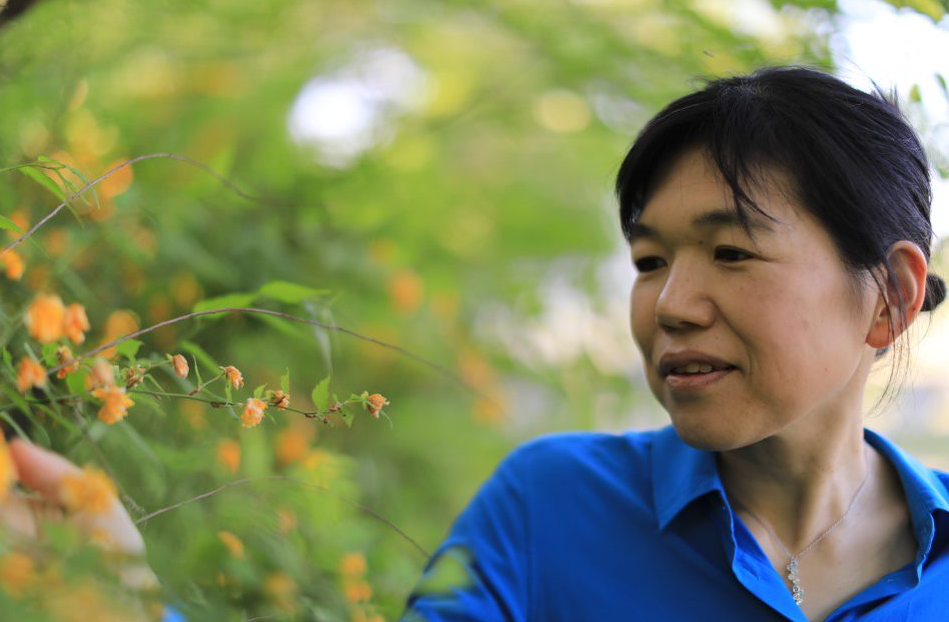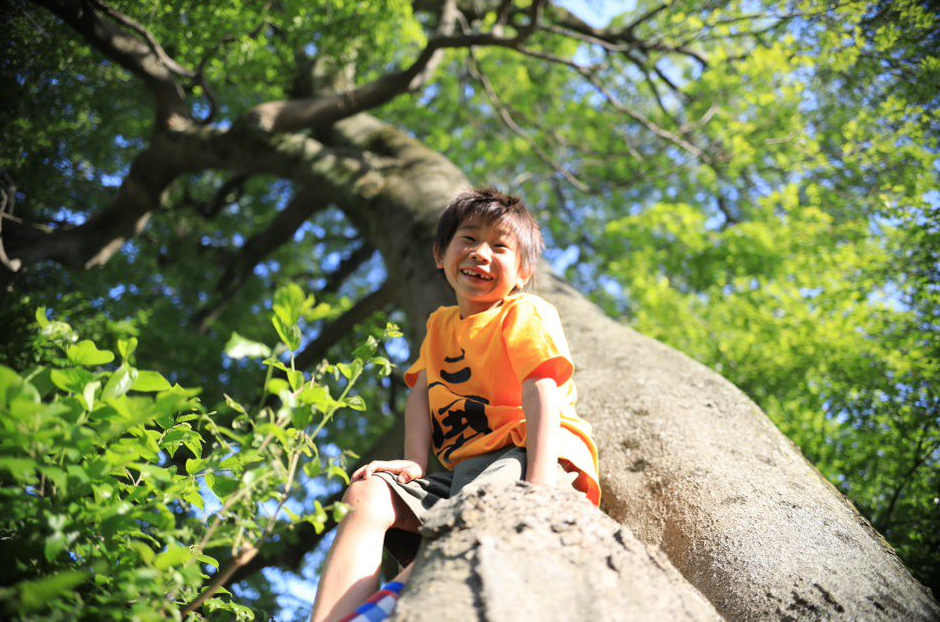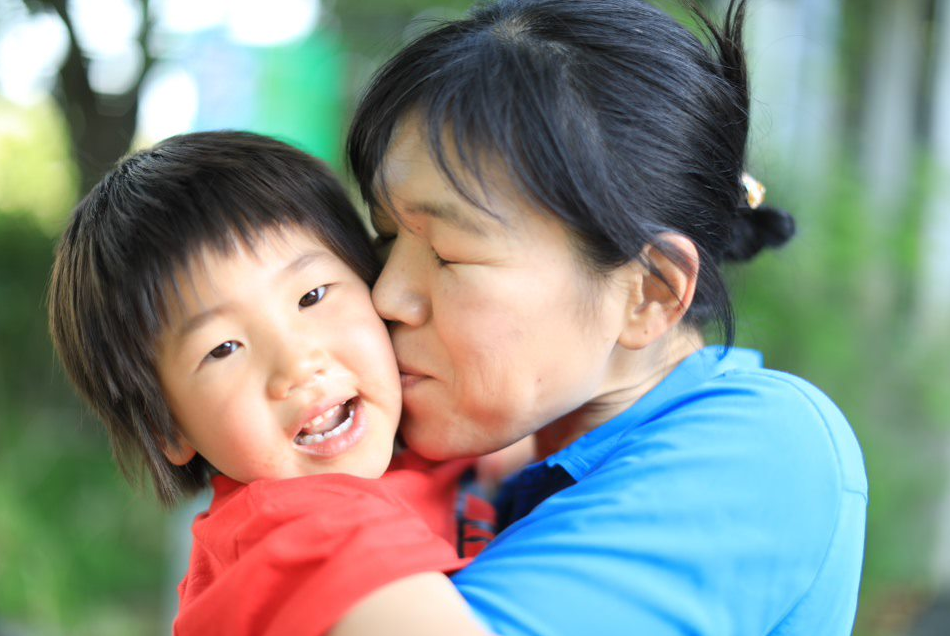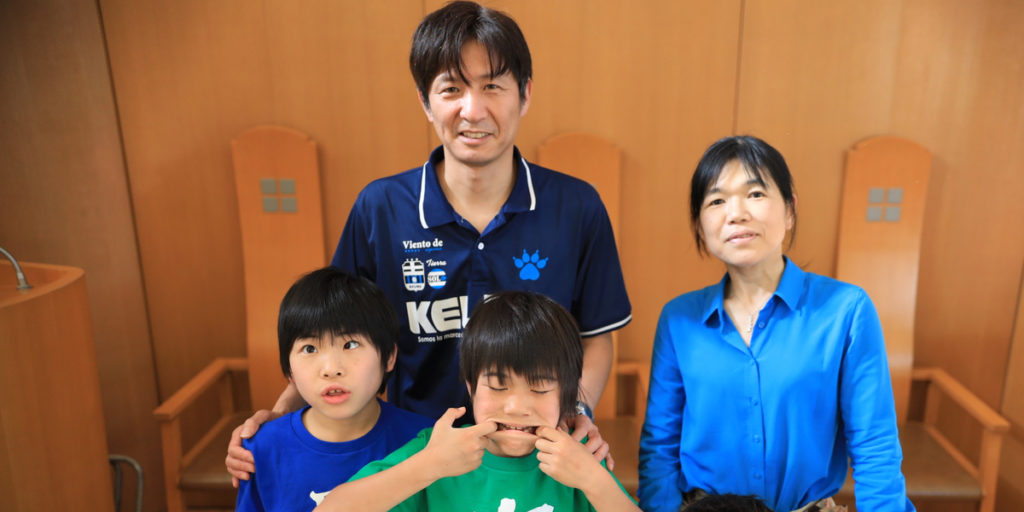
Yoshie Family, Ages 4 to 11
Tokyo, Japan
Teruki (age 6) readies himself, calculating his approach before taking a shot on net. Guarding the goal is his older brother, Daichi (age 9), a friend at times, though more often a worthy opponent. The two have been provoking each other all morning and the intensity in Teruki’s stare says he’s about to settle it. With a dramatic windup, Teruki kicks hard—too hard—and the ball ricochets off a back wall before Daichi even has a moment to react. Just then, their oldest brother, Souto (age 11), appears and quickly takes control of the ball, dribbling around his younger siblings in a clear example of superior skill. Undeterred, Teruki runs off in search of their youngest brother, Tokiya (age 4), who is perfectly content playing non-competitively with toy trucks and animals.
A family with four boys is like a never ending circus: skateboarding, hanging upside down, arguing over snacks and lining up to ride on Dad’s shoulders. All day the brothers run like rascals through the park, climbing fearlessly up the trunks of trees and, laughing wildly—their gapped-toothed smiles flashing the joys of childhood. Yuki and Junji are affectionate and playful parents and a loving support to one another. They imbue the boys with an encouraging sense of optimism and model a high degree of tolerance for their many antics. Their approach to parenting is especially poignant given that Yuki and the three oldest boys live with Fabry disease, a rare and progressive genetic disorder that may cause numbness and burning pain in the body, especially in the extremities, and may affect the functioning of the heart, kidneys and other bodily systems. For the Yoshie family, Fabry disease is an intergenerational story, one that is woven like threads throughout the family fabric.



